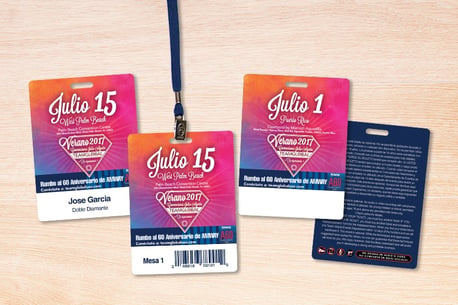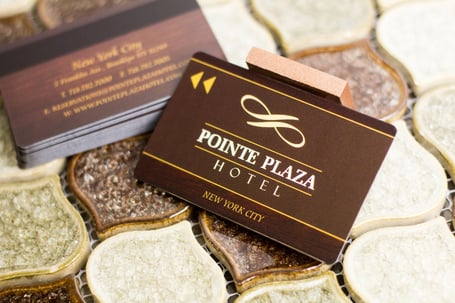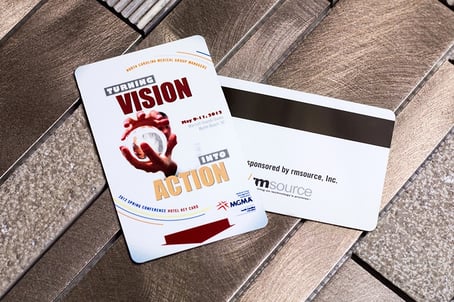Access control and admittance are big business these days. Keeping your business secure and monitoring your employees or clients is paramount. So how do you get started, and what do you need?
There are 3 different types of id cards that allow for access.
Each type of custom ID card has positive and negative aspects, let's take a look at each.
Barcode
A barcode is one of the simplest of these technologies. But also the most versatile. A barcode can go on almost any size ID card. From an access pass at a concert to a key tag gym membership card. Barcodes are easy to use and allow your business to keep track of who's coming and going.


Barcodes are very durable because they print thermally or below a laminate which means they won't scratch off and they will last a long time.
On the flip side, they are easy to copy and they're the least secure of the technologies that we'll discuss.
Magnetic Cards
Magnetic cards are a bit more complicated. They have to be credit card length. If they aren't, the cards won't read in standard readers. So that limits your card size choices.
Magnetic cards are also less durable than barcodes because they can demagnetize which may have happened to you at some point. You're out buying clothing, and they have magnetic security devices on clothes. When the clerk runs your clothing through the demagnetizer, your card is too close to the device. Now nothing will read off the card.

Magnetic cards were used for security access and hotel key cards, but these have given way to NFC/RFID cards.
Magnetic cards are tricky to duplicate because they need a lot of equipment to make. So it would be unlikely that someone would spend $3,000+ to copy your ID badge.
These type of cards are used for hotels key cards, restaurant and retail manager cards, and membership cards.
NFC Card or RFID Smart Cards
Smart cards are replacing the standard magnetic and barcode cards. These cards are programmable and are super easy to track in real time.
A smart card works with a microchip inside of it. This chip is coded with data that will interact with a chip reader. So when you walk into a building, you touch your card to the reader.


The reader connects to a computer "brain" that knows who is allowed in specific parts of the building. It knows based on your level of access whether the card you're holding should unlock the door.
These cards are beneficial for many reasons. They're super durable. The chip is underneath the plastic, so it isn't susceptible to damage. And because the chip is on the inside, if the id badge gets scratched, the chip still reads. Most smart cards are shielded from magnetic interference, so you won't have to worry about them not working.
Smart cards are perfect for:
- Corporate Access Cards
- High-Security Situations
- Office Access
- Apartment Access
- Garage Access
- Gyms
- Fitness Center (24-Hour Access)


It all depends on what you need.
So let's not get too ahead of ourselves. The type of card you buy is going to depend on what kind of software and hardware you already have.
Schedule a complimentary consultation and our team will walk you through the types of cards, and what will best fit your situation.
